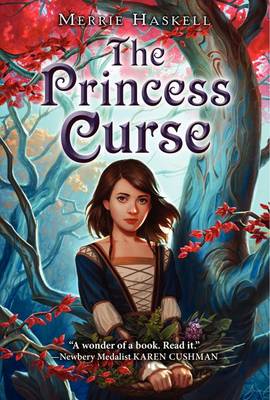Reviewed by Briana @ Pages Unbound on
The book’s biggest strength is the imagination behind the plotline. Usually the father of the twelve dancing princesses wants the curse broken because he just loves his daughters so much. Prince Vasile does love his daughters—but there is also the problem here that if none of them marry and produce an heir soon, the country will be invaded. And no one will marry them because every man who has tried has disappeared or slipped into an unending sleep. The entire kingdom has a stake in the fate of the princesses because two rival countries are pushing for war, and the country has already been ravaged by the Turks. The reader will also discover that the lords of the Underworld have a stake in the fate of the country, too.
The characters who storm their way through this plot are also very unique. Reveka is a fantastically strong, intelligent, and level-headed heroine—generally a great role model. However, she can also be disagreeable, and even though this makes her realistic, it can also create a bit of distance between her and some readers. Of course all thirteen-year-olds are not amazingly selfless, and Reveka does come to a greater understanding of how to treat and care for others by the end, but there are moments when one cannot help but be displeased by her decisions. Many of the other characters are also a strange mix of kindness and qualities that make them disagreeable. Reveka’s father believes she lies all the time and expresses his love for her somewhat sporadically. Her master is a lazy monk who rarely gets up before noon. Only one princess is truly compassionate. The bath woman helps Reveka but is a terrible gossip. Overall, the characters are diverse and real, and good people at the core, but they make the book a little darker than one might expect.
Because of this darkness, the audience for the book is somewhat up for question. Reveka’s age, the story idea, and the cover art all scream “middle grade,” but other elements point to older readers. For instance, at the start of the book Reveka reveals that ten of the princesses are illegitimate. There is later a brief discussion of when marriages with “child brides” are generally consummated. In a movie, these references could be interpreted as little asides to the adults who are watching with their children—but their inclusion makes little sense in a book that a child would read by herself. It was all somewhat confusing.
The Princess Curse, then, is an enjoyable read and an imaginative retelling. It has a strong protagonist and a great supporting cast. Though it stands alone, it leaves open some questions that could lead to a sequel I would love to read. But I, unexpectedly and ironically, would hesitate to recommend it to a preteen.
This review was also posted at Pages Unbound Book Reviews.
Reading updates
- Started reading
- 18 December, 2011: Finished reading
- 18 December, 2011: Reviewed
